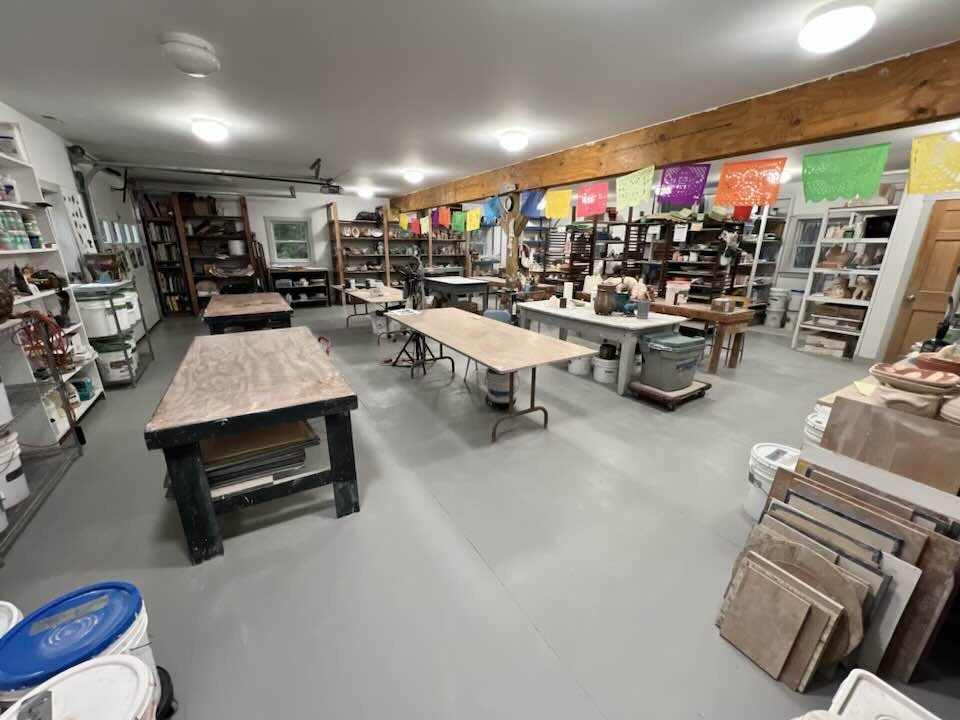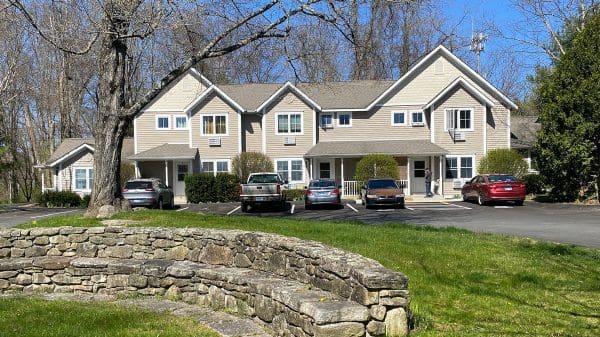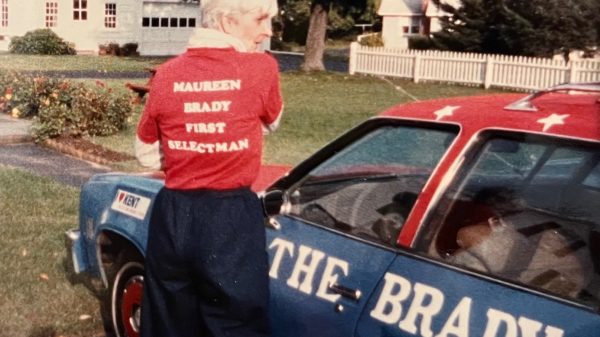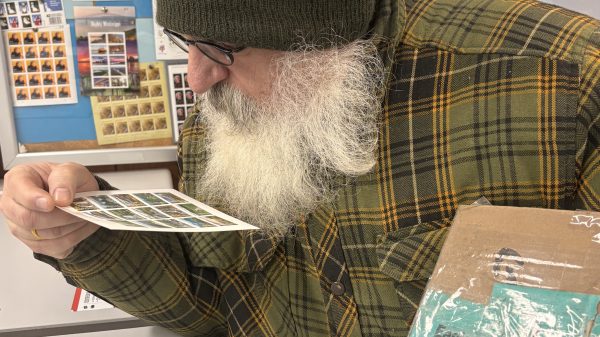KENT—The Planning and Zoning Commission will take action at its February meeting on an after-the-fact application for a major home enterprise submitted by Steve Katz and Alison Palmer of 48 Stone Fences Lane.

At its Jan. 9 meeting, commission members indicated support for the application despite opposition from neighbors because it fits the criteria for a home occupation as defined in the zoning regulations.
The members will take this month to consider conditions that might be imposed on the home business to mitigate its impact on the neighborhood.
Palmer has operated a pottery studio onsite for the past 17 years without proper permits, an issue that came to light when a new neighbor complained about traffic on the private road generated by the studio’s special events, especially the Clay Way Studio Tour in October, and a nine-day open house held in December.
While there have been no complaints from neighbors during the previous 17 years, the new neighbors’ complaint ignited a firestorm of commentary. More than 200 letters were submitted to the Planning and Zoning Commission supporting the application, while some neighborhood residents urged its denial.
Katz testified before the commission that the couple hold about 10 workshops a year, but that some are cancelled because of a lack of registrations. He reported some sessions have as few as four participants and that large classes are impossible because of the limited number of potter wheels available. He asserted that he and his wife have no plans to expand beyond their current operation.
No retail sales are made there except during the annual Clay Way Open Studio tour.
He contended that traffic issues in the neighborhood cannot be laid at their door, because there are 24 houses in the subdivision, most of which have at least two cars associated with them.
“Traffic to our studio is only a fraction of the cars coming and going if you count residents’ travel, deliveries and visits by friends,” he argued.
He added that workshop participants are urged to not drive more than 20 miles per hour and to carpool.
He termed the complaint filed by David and Denyse Stoneback as “ludicrous and hostile,” saying that the traffic generated by their studio does not damage the private road or increase safety issues for those walking along the lane.
Nevertheless, the Stone Fences Association submitted a letter opposing permitting the business. It was asserted that property values would decrease and the character of the neighborhood would be permanently changed.
Katz said his property value has doubled since the studio has been in operation and cited a letter from a real estate agent saying that it is the type of business that is brought into a neighborhood that decides its effect on values. “If it were meat packing, sure, [it would decrease values,] wrote Steve Pomeranz, realtor. “An artist’s studio—no.”
Katz argued that they cannot afford to move the studio to another location. “I would hate to lose our home to three people and two elderly dogs so they can walk on Stone Fences Lane,” he quipped.
Association President John Gebauer testified that the association’s objection to the business permit is because Stone Fences was designed and built as a residential community.
“Having a business approved on our private street will increase insurance costs because there will be more traffic than on a residential street,” he said. “It’s something the community was not designed for. The town would benefit, but the rest of the town would not have to pay.”
Stone Fences resident David Carey argued that approval would open the door for similar applications by other residents—including himself.
“I would expect the commission to approve similar applications in the months ahead,” he said.
Dave Stoneback said he was surprised to have been portrayed as a bad guy for bringing up a longstanding zoning violation. He outlined conditions that apply to home occupations, including not being visible from off the property, not creating safety issues, and overall neighborhood compatibility.
“Is the town going to put the responsibility on the association to maintain the road for the benefit of the applicants?” he asked.
But others defended operation of the studio. Clay artist Joy Brown termed Katz and Palmer “ a wonderful asset to the community” and said there is not much traffic generated by people coming to a full-day workshop.
“There are ways to work it out,” she said. “I would love to see Kent support home businesses like this.”
Commissioners largely supported the application with only Shelby Green saying she did not favor approval. “We’ve heard enough testimony about the negative impact of safety issues,” she said.
“I don’t think the business is suitable for the location and I am disturbed by their representation about the volume of the business compared to what they advertise,” she said. “They say eight to 12 events a year but have advertised 16. There seems to be a lack of honesty by the applicants.”
But other commission members did not agree. Sarah Chase said special permits are considered on a case-by-case basis and no precedent would be established.
Karen Casey said she did not see it so much as a business, but a “platform for art and a home occupation … I am not in favor of taking away the ability to do art. It’s part of [Kent’s] culture.”
Larry Dumoff said he did not feel the opponents had proved that the traffic issues were created by the workshops.



































Tom Loggia
January 19, 2025 at 11:34 am
What a shame
I have know Alison Palmer for over 50 years. During our time at John Jay High School in Cross River NY we shared a love for ceramics and became friends while working in our schools ceramic arts department. Over the last 17 years we kept in touch through my participation in many inspiring workshops that Alison and Steve would provide in their beautiful ceramic studio. I believe these workshops and my participation with firings in both the wood and soda kilns were instrumental in my creative development in my pottery. I am now the studio manager and a teacher at the Railyard Arts Studio in Croton Falls New York. Recently one of my pottery Jugs was jury selected to be displayed in the New York State Museum in Albany NY and I believe this would not have been possible without Alison and Steve inspiring workshops.
Please allow them to upgrade their business land permit so they can continue to offer these inspiring workshops to more artists in the ceramic community.
Thank you
Tom Loggia